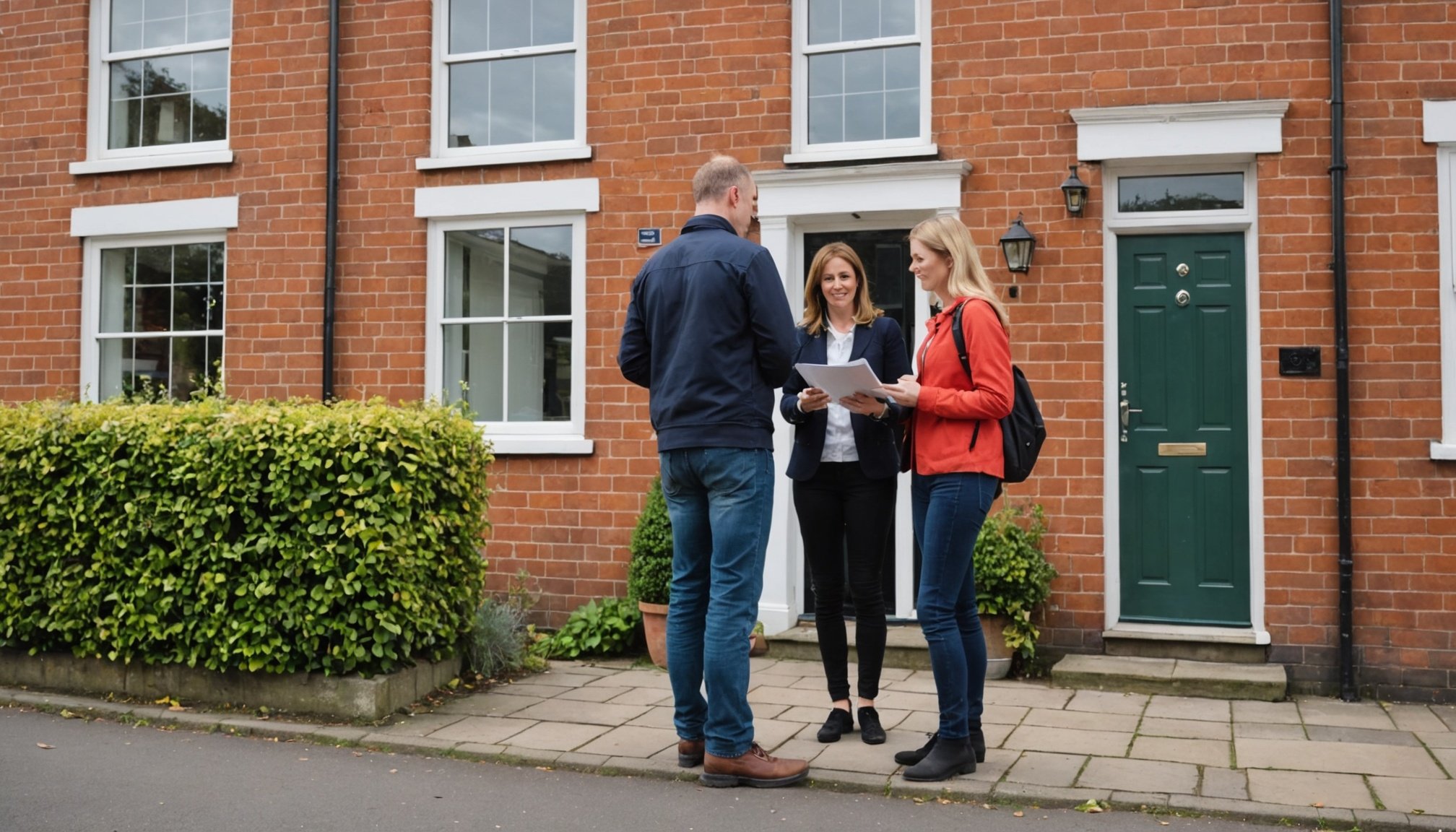Your Ultimate Guide to Preparing for a Successful Property Survey in Derby Before Selling Your Home
When you decide to sell your home in Derby, one of the most critical steps in the process is the property survey. This comprehensive guide will walk you through everything you need to know to prepare for a successful property survey, ensuring your home is ready for the market and that you can navigate the sale process smoothly.
Understanding the Importance of a Property Survey
Before diving into the preparation, it’s essential to understand why a property survey is crucial. A survey provides a detailed report on the condition of your property, highlighting any potential issues or defects that could impact the sale.
In parallel : Unearthing sustainable shopping: your ultimate guide to eco-friendly practices in cambridge
“As a seller, you want to be transparent about the condition of your home to build trust with potential buyers. A property survey helps you identify and address any problems early on, which can save you time and money in the long run,” says Jane Burton, Legal Director and New Build Team Manager at Nelsons Solicitors[1].
Types of Home Surveys
There are several types of home surveys available, each serving a different purpose. Here are the most common ones:
In parallel : Effective approaches to track property value appreciation in manchester”s gentrifying neighborhoods
RICS Home Survey Level 1
- This is a basic survey that provides a general overview of the property’s condition. It is ideal for new build homes or properties in good condition.
- Cost: Generally the least expensive option.
- Detail: Limited, focusing on major defects.
RICS Home Survey Level 2
- This survey is more detailed and includes a report on the property’s condition, highlighting any major or minor defects.
- Cost: Moderate.
- Detail: Includes advice on repairs and maintenance.
RICS Home Survey Level 3
- This is the most comprehensive survey, providing a detailed analysis of the property’s structure and condition.
- Cost: The most expensive option.
- Detail: Includes detailed advice on repairs, maintenance, and potential costs.
Homebuyer Report
- This report is similar to the RICS Home Survey Level 2 but also includes a valuation of the property.
- Cost: Moderate.
- Detail: Includes a valuation and advice on repairs.
Here is a comparative table to help you choose the right survey for your needs:
| Type of Survey | Cost | Detail | Includes Valuation |
|---|---|---|---|
| RICS Home Survey Level 1 | Least Expensive | General overview, major defects only | No |
| RICS Home Survey Level 2 | Moderate | Detailed report on condition, major and minor defects | No |
| RICS Home Survey Level 3 | Most Expensive | Comprehensive analysis, detailed advice on repairs and maintenance | No |
| Homebuyer Report | Moderate | Detailed report on condition, includes valuation | Yes |
Preparing Your Home for the Survey
To ensure the survey process goes smoothly and accurately reflects the condition of your property, here are some steps you can take:
Clean and Declutter
- Make sure your home is clean and decluttered. This will allow the surveyor to access all areas easily and get a clear view of the property’s condition.
- “A clean and tidy home can make a big difference in how the surveyor perceives the property. It shows that you take care of your home,” advises a chartered surveyor from Watsons Property[4].
Complete Minor Repairs
- Address any minor repairs before the survey. Fixing leaky faucets, patching holes in walls, and ensuring all doors and windows are in good working order can make a significant difference.
- “Minor repairs can prevent major issues from being highlighted in the survey report. It’s always better to be proactive,” suggests Chris Huntingford, Partner & Solicitor at Nelsons Solicitors[1].
Provide Access
- Ensure that all areas of your home are accessible to the surveyor. This includes attics, basements, and any outbuildings.
- “Surveyors need to inspect every part of the property to provide an accurate report. Make sure they have easy access to all areas,” recommends Trevor Scott, Partner & Licensed Conveyancer at Nelsons Solicitors[1].
Gather Documentation
- Have any relevant documentation ready, such as maintenance records, repair receipts, and any previous survey reports.
- “Having documentation ready can help the surveyor understand the history of the property and provide a more accurate report,” says Russell Hurst, Legal Director & Licensed Conveyancer at Nelsons Solicitors[1].
What to Expect During the Survey
Here’s what you can expect when the surveyor visits your property:
Inspection Process
- The surveyor will conduct a thorough inspection of your home, both inside and out.
- They will check for any signs of structural damage, dampness, and other potential issues.
Reporting
- After the inspection, the surveyor will compile a detailed report highlighting any defects or issues found.
- The report will include recommendations for repairs and maintenance.
Here is a detailed list of what the surveyor will typically check:
-
Exterior:
-
Walls and foundations
-
Roof condition
-
Gutters and downspouts
-
Windows and doors
-
Outbuildings
-
Interior:
-
Walls and ceilings
-
Floors
-
Insulation
-
Plumbing and electrical systems
-
Heating and cooling systems
-
Additional Checks:
-
Environmental issues (e.g., dampness, mold)
-
Structural integrity
-
Any signs of pest infestation
Understanding the Survey Report
Once you receive the survey report, it’s crucial to understand what it means and how it can impact the sale of your home.
Key Components of the Report
- Summary: A brief overview of the property’s condition.
- Detailed Analysis: A thorough examination of each part of the property.
- Recommendations: Advice on necessary repairs and maintenance.
- Valuation: If included, an estimate of the property’s value.
Addressing Issues Highlighted in the Report
- If the report highlights any significant issues, it’s important to address them before listing your home for sale.
- “Buyers are more likely to trust a seller who has already addressed any major issues. It can also help you avoid last-minute negotiations or even the sale falling through,” advises Mark Williams, Partner & Solicitor at Nelsons Solicitors[1].
The Role of Estate Agents and Solicitors
Estate agents and solicitors play a vital role in the home-selling process, and they can provide valuable advice on how to prepare for and navigate the survey.
Estate Agents
- Estate agents can help you understand the local market and advise on how to present your home in the best light.
- “Estate agents have a deep understanding of what buyers are looking for. They can provide tips on how to make your home more attractive to potential buyers,” says an estate agent from Elliot Mather[2].
Solicitors
- Solicitors specializing in property law can guide you through the legal aspects of the sale, including the survey process.
- “Solicitors can help you understand the legal implications of the survey report and ensure that all necessary documentation is in order,” explains Jane Burton, Legal Director and New Build Team Manager at Nelsons Solicitors[1].
Additional Costs to Consider
Besides the cost of the survey, there are other expenses you should be aware of when selling your home:
Survey Costs
- The cost of the survey will depend on the type you choose, ranging from a few hundred to several thousand pounds.
Other Costs
- Mortgage Fees: If you are using the proceeds from the sale to purchase a new home, you will need to consider mortgage fees.
- Stamp Duty: Depending on the price of your new home, you may need to pay stamp duty land tax (SDLT).
- Solicitors’ Fees: Legal fees for handling the sale of your property.
- Estate Agent Fees: Fees charged by estate agents for marketing and selling your home.
Here is a breakdown of some of the additional costs you might incur:
| Cost Type | Description | Estimated Cost |
|---|---|---|
| Survey Costs | Depending on the type of survey | £300 – £1,500 |
| Mortgage Fees | Fees associated with securing a new mortgage | £500 – £2,000 |
| Stamp Duty | Tax on purchasing a new property | Varies based on price |
| Solicitors’ Fees | Legal fees for handling the sale of your property | £800 – £2,000 |
| Estate Agent Fees | Fees charged by estate agents for marketing and selling your home | 0.75% – 2.5% of sale price |
Preparing for a property survey is a crucial step in the home-selling process. By understanding the different types of surveys, preparing your home thoroughly, and knowing what to expect during and after the survey, you can ensure a smooth and successful sale.
“Remember, transparency and preparation are key. A well-prepared home and a clear understanding of the survey process can make all the difference in attracting potential buyers and securing a good sale price,” advises Russell Hurst, Legal Director & Licensed Conveyancer at Nelsons Solicitors[1].
By following this guide, you’ll be well-equipped to navigate the property survey process and sell your home with confidence in the Derby property market.





